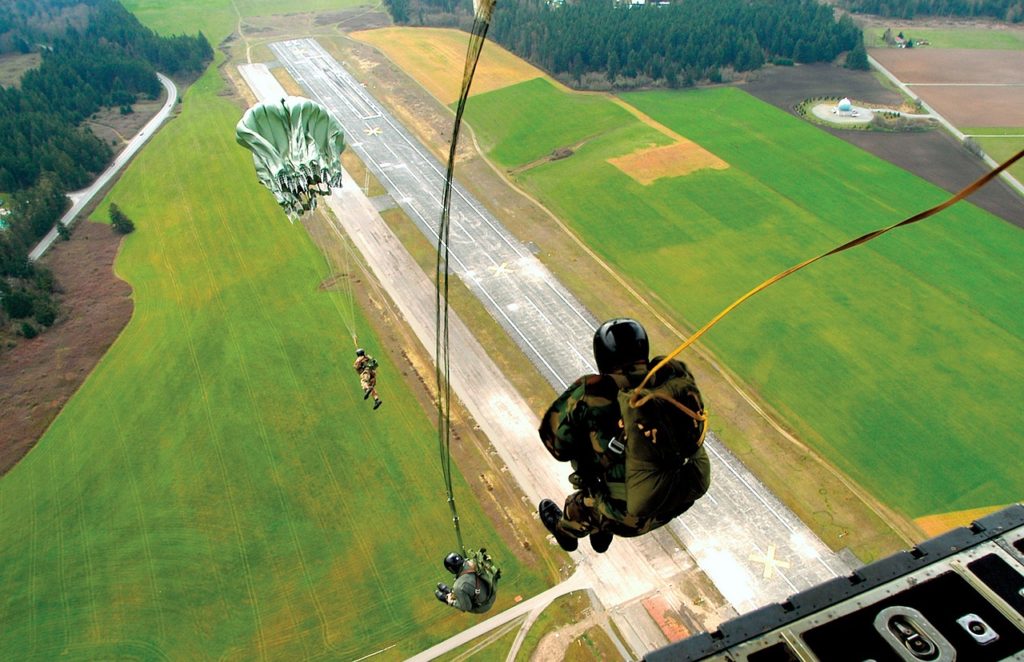
Picture standing at the edge of an open airplane door, wind blowing past, with nothing but the huge sky below. This is the start of training for many paratroopers. The first jump is intense – your body feels nervous, and your stomach is in knots. Your mind is also scared, warning you about the danger of falling to the ground. It’s a mix of physical and mental unease, a tough test that helps build strength.
My friend Marc-Antoine Crocq once drew an analogy between parachuting and anxiety, sparking a powerful question. Is it possible to experience the physical symptoms of anxiety without fear?
Understanding Physical Anxiety
Physical anxiety is how your body reacts to stress. It’s a natural response when facing something scary, like jumping from a high place. The body goes into overdrive, releasing adrenaline, making the heart race, and sharpening your senses. Even with all their training, paratroops still feel this physical anxiety with each jump. It’s like the body remembers that first leap into the unknown.
A Lingering Feeling
Mental fear comes from our conscious mind and is more complicated. In the beginning of parachute training, soldiers deal with the fear of not knowing what might happen, the fear that their equipment might not work, and the fear of losing control. This mental challenge can be even more difficult than the physical ones. But as these elite soldiers do more jumps – 10, 50, or even 100 – the mental fear starts to go away. The mind adjusts, changing how it responds to the scary situation. Similarly, anxious people are always left with the never-ending ‘what if’ questions? Even when one fear seems to go away another one pops up in its place.
Exposure Makes a Difference
The key to getting rid of mental fear is doing the same thing over and over. For the paratrooper, each jump becomes a step forward, a way to face anxiety and fear on purpose. The brain, which is really good at getting used to new things, slowly changes how it works. What was once a really scary experience becomes a familiar challenge, and the surprises become less and less. Training not only improves the physical skills needed for a good jump but also changes how the mind thinks about the challenge.
Parachute training is interesting because even after the mental fear is gone, the physical anxiety stays. After many jumps, soldiers still feel the body’s reactions – the fast heart, the rush of adrenaline – without feeling as scared in their mind. It’s a strange situation where the body remembers the fear, but the mind has gotten used to the challenge.
Finding Balance
Looking at how soldiers deal with fear during parachute training, it’s clear that overcoming fear is not about getting rid of it completely. It’s about finding a balance. The body’s natural reaction to danger is important for staying safe. At the same time, the mind learns how to handle fear, turning it from something that holds you back into a tool for growing and getting better. One of the best ways to do that is to face the situations and places that make you the most uncomfortable.
The journey of paratroops through parachute training shows us that fear is complex. It’s a mix of physical and mental challenges that requires strength, control, and a willingness to face your deepest fears. As these brave soldiers keep jumping from planes, they show us how humans can change, grow, and go beyond the basic instincts that used to hold them back.
The skies may seem big, and the heights might be scary, but in the face of fear, they don’t just fall – they rise, showing courage and becoming experts in what they do. And while it’s unlikely that people dealing with anxiety will find themselves leaping out of airplanes, the key takeaway is that confronting your fears and consistently practicing exposure to your fears can significantly reduce the psychological barriers posed by anxiety.




Really glad to see you back! Can’t wait for a podcast though!